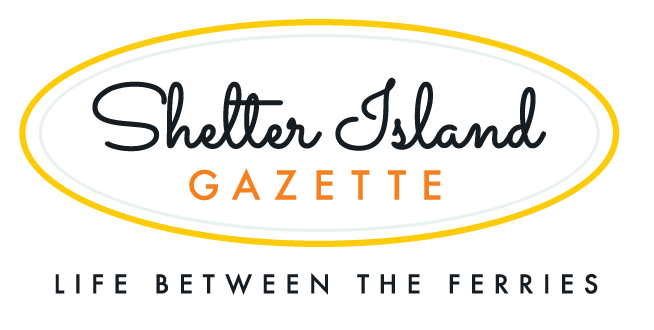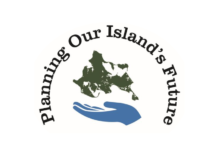Shelter Island Chief of Police James Read shared a COVID-19 311 Q & A during the Shelter Island Town information session on Thursday, March 12. It’s the script provided to operators who handle calls to the Suffolk County 311 helpline.
Find links to the Q & A and other resources on the Shelter Island Police Department website, https://www.shelterislandtown.us/shelter-island-police-department.
COVID-19 311 Q & A
NOTE: This information is from the Suffolk County Department of Health Services and was updated March 7, 2020
What are the symptoms of COVID-2019?
For confirmed COVID-2019, reported illnesses have ranged from people with mild symptoms to people being severely ill and dying. Symptoms can include:
- Fever
- Cough
- Shortness of breath
Based on early data from China, approximately 80% of cases have mild symptoms
What is the risk?
Based on early data from China, approximately 80% of cases have mild symptoms
As of today, the Centers for Disease Control and Prevention (CDC) states that the risk in the U.S. is still low. It will update the status regularly on the CDC website.
How is COVID-2019 spread?
Current understanding about how the virus that causes COVID-2019 spreads is largely based on what is known about similar coronaviruses.
The virus is thought to be spread mainly from person-to-person
- Between people who are in close contact with one another (within about 6 feet)
- Through respiratory droplets produced when an infected person coughs or sneezes
Screening for Travel
As of 3/5/2020, only travelers coming from mainland China are being screened at one of eleven airports in the U.S., one of them is JFK. Those travelers are then referred to the local health departments for monitoring for 14 days upon return from China.
NYS has directed that those who are returning from an affected country – China, Iran, Italy, South Korea, Japan – stay home for 14 days from the time one left an area with widespread, ongoing community spread and practice social distancing.
Prevention/Treatment
For everyone: It’s currently flu and respiratory disease season and CDC recommends getting vaccinated, taking everyday preventive actions to stop the spread of germs, and taking flu antivirals if prescribed.
There is currently no vaccine to prevent 2019-nCoV infection. The best way to prevent infection is to avoid being exposed to this virus. However, as a reminder, CDC always recommends everyday preventive actions to help prevent the spread of respiratory viruses, including:
- Wash your hands often with soap and water for at least 20 seconds. Use an alcohol-based hand sanitizer that contains at least 60% alcohol if soap and water are not available.
- Avoid touching your eyes, nose, and mouth with unwashed hands.
- Avoid close contact with people who are sick.
- Stay home when you are sick.
- Cover your cough or sneeze with a tissue, then throw the tissue in the trash.
- Clean and disinfect frequently touched objects and surfaces.
Where can I get tested for COVID-2019?
New York State is actively working to expand testing capacity; but despite some reports, at this point in time the tests are not widely available. In the interim, you should talk to your primary care doctor about testing if you are:
- An individual who has come within proximate contact (same classroom, office, or gatherings) of another person known to be positive; or
- An individual who has traveled to a country that the CDC has issued a Level 2 or Level 3 Travel Health Notice [As of 3/6/2020, those countries are China, Iran, Italy, South Korea, and Japan], and shows symptoms of illness; or
- An individual is quarantined (mandatory or precautionary) and has shown symptoms of COVID-19 illness; or
- An individual is symptomatic and has not tested positive for any other infection; or ·
- Other cases where the facts and circumstances warrant as determined by the treating clinician in consultation with state and local department of health officials.
Why can’t I get a test for COVID-2019?
There is criteria for testing in New York State. We want the most clinically applicable persons to be tested prior to those with less risk. NYSDOH is working with local medical providers and labs to get tests more widely available.
As of 3/6/2020, you should speak to your doctor about testing if you are:
- An individual who has come within proximate contact (same classroom, office, or gatherings) of another person known to be positive; or
- An individual who has traveled to a country that the CDC has issued a Level 2 or Level 3 Travel Health Notice [as of 3/6/2020, those countries are China, Iran, Italy, South Korea, and Japan], and shows symptoms of illness; or
- An individual is quarantined (mandatory or precautionary) and has shown symptoms of COVID-19 illness; or
- An individual is symptomatic and has not tested positive for any other infection; or ·
- Other cases where the facts and circumstances warrant as determined by the treating clinician in consultation with state and local department of health officials.
What if I’ve had close contact with someone who has tested positive for COVID-19?
Refer to Suffolk County Department of Health Services. You should call 631-854-0333
Operator should collect your name, address, phone number and country traveled to and send to Health Services.
What if I recently travelled to an affected area (China, Japan, Italy, South Korea, Iran) and have symptoms?
If you recently traveled to these areas of concern and feel sick with fever, cough, or trouble breathing, you should:
- Seek medical care right away. Call ahead and tell them about your travel and symptoms
- Avoid contact with others. Stay home, except for seeking medical care
- Avoid further travel until the illness resolves
- Cover your mouth and nose with a tissue or your sleeve (not your hands) when coughing or sneezing.
- Wash hands often with soap and warm water for at least 20 seconds. If unavailable, use an alcohol-based hand sanitizer.
Operator should collect name, address, phone number and country traveled to and send to Health Services.
What if I’ve recently traveled to affected area (China, Japan, Italy, South Korea, Iran) but have no symptoms?
New York State has directed that travelers returning from an affected country (China, Iran, Italy, South Korea, Japan) go under precautionary quarantine and stay home for 14 days from the time one left an area with widespread, ongoing community spread and practice social distancing.
Operator should collect name, address, phone number and country traveled to and send to Health Services.
Take these steps to monitor your health and practice social distancing:
- Take your temperature with a thermometer two times a day and monitor for fever. Also watch for cough or trouble breathing.
- Stay home and avoid contact with others. Do not go to work or school for this 14 day period. Discuss your work situation with your employer before returning to work.
- Do not take public transportation, taxis, or ride-shares during the time you are practicing social distancing.
- Avoid crowded places (such as shopping centers and movie theaters) and limit your activities in public.
- Keep your distance from others (about 6 feet or 2 meters)
A good guide to share for household living is Centers for Disease Control (CDC) Guidance called “Preventing the Spread of Coronavirus Disease 2019 in Homes and Residential Communities” and can be found at https://www.cdc.gov/coronavirus/2019-ncov/hcp/guidance-prevent-spread.html#First-heading
Should I be wearing a mask in public?
The CDC does not recommend the use of face masks or N95 respirators among the general public. We need to preserve the use of masks and other personal protective equipment for health care workers and individuals who may be ill.
Are students returning from certain countries being quarantined?
Yes, the NYS Department of Health has required students and faculty returning from affected countries (China, Japan, Italy, South Korea, Iran) to be under precautionary quarantine for 14 days upon return. Schools are reporting such travel to the local health department and the local health department will monitor students and faculty. This includes school sponsored travel or individual travel.
My neighbor, coworker, friend – returned from international travel, what should I do?
Right now, the only federal screening and reporting to local health departments is for people returning from mainland China.
Schools are reporting staff and students who have returned from an affected country (Iran, Italy, China, Japan, South Korea) to the local health department. The health department will monitor students and faculty for fourteen days upon return.
NYS has directed those who are returning from an affected country (China, Iran, Italy, South Korea) stay home for 14 days from the time one left an area with widespread, ongoing community spread and practice social distancing. This is considered precautionary quarantine.
See if caller will share information about the person they are calling about – name, contact information and country travelled from – with operator. Operator should send that information to Health for follow up.
Be cautious, take regular preventive measures to stop the spread of viruses: Wash hands with soap and water, and often; Avoid touching eyes, nose or mouth with unwashed hands, especially before eating; Avoid contact with sick people; and stay home if you feel sick, or are caring for a sick housemate.
My family member is currently on movement restrictions (precautionary quarantine) in my household. I did not travel and am not being quarantined or limited in my movements. Can I go to work/school?
OR
My colleague or a student has a family member who is currently on precautionary quarantine because of travel. The colleague or student did not travel. Are they allowed to go to work or school?
According to NYSDOH, there is no medical or public health reason why household members (including children), who themselves did not travel to an affected country, cannot continue to attend school or work when they are a close contact of persons without signs of illness who are under precautionary quarantine or restricted movements. These persons have not been exposed to COVID-19 and are not at risk of developing COVID-19 as long as they remain unexposed and the person under quarantine or restricted movement remains in a separate area of the household and without symptoms. If the person under quarantine or restricted movements in the household starts to feel sick, it is very important that they notify their Local Health Department immediately. If the person under quarantine or restricted movements becomes sick, movement restrictions may be placed on household members at the discretion of public health authorities.
Are there any items I should have at home to prepare?
It’s a good idea to gather and update home preparedness kits. This kit would ideally contain a thermometer, decongestants, anti-inflammatory drugs and acetaminophen for fevers.
What has Suffolk County done in response?
Public Health Perspective: This is what we are trained to do. The NYS Sanitary Code requires all local health departments to investigate, report, and provide outbreak control as needed for over 70 communicable disease. While COVID-2019 is an emerging disease, we have an excellent public health team experienced in disease investigation and control.
County officials and public health team have been in constant contact with New York State Department of Health Services and the CDC.
The County has also implemented an interagency approach from early February 2020, team members include the County Executive’s Office; Health Services, including EMS; Fire, Rescue, and Emergency Services; Police Department; County Attorney’s Office; Department of Social Services; Information Technology.
The County also held a multi-agency tabletop exercise on March 5th to help prepare all County departments and agencies regarding coronavirus. The training event allowed departments and agencies to assess and evaluate preparedness, run through possible scenarios, and ensure each department is familiar with procedures and protocols.
Where can I find reliable information about COVID-2019?
New Yorkers can access accurate, reliable and up-to-date information on the Department of Health’s website: www.health.ny.gov/coronavirus. New Yorkers can also call the Department of Health’s hotline at 1-888-364-3065. You can also find reliable information and updates about the virus on the website and social media platforms of the U.S. Centers for Disease Control and Prevention: www.cdc.gov/COVID19.




